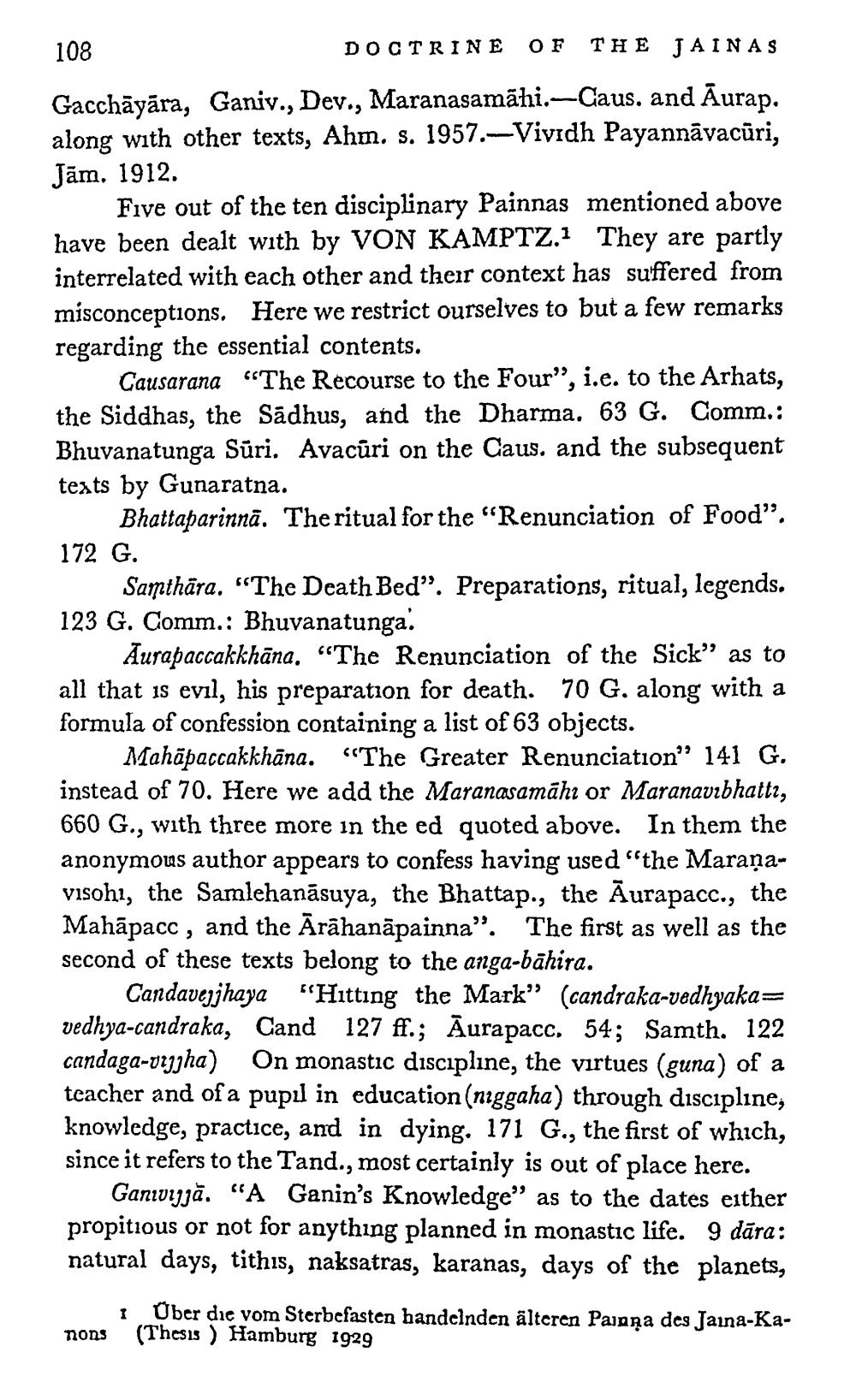________________
108
DOCTRINE OF THE JAINAS Gacchāyāra, Ganiv., Dev., Maranasamāhi.-Caus, and Āurap. along with other texts, Ahm. s. 1957.- Vividh Payannāvacūri, Jām. 1912.
Five out of the ten disciplinary Painnas mentioned above have been dealt with by VON KAMPTZ. They are partly interrelated with each other and their context has suffered from misconceptions. Here we restrict ourselves to but a few remarks regarding the essential contents.
Causarana “The Recourse to the Four”, i.e. to the Arhats, the Siddhas, the Sadhus, and the Dharma, 63 G. Comm.: Bhuvanatunga Sūri. Avacūri on the Caus. and the subsequent texts by Gunaratna.
Bhattaparinnā. The ritual for the "Renunciation of Food”. 172 G.
Samthāra. "The Death Bed”. Preparations, ritual, legends. 123 G. Comm.: Bhuvanatunga.
Aurapaccakkhāna. "The Renunciation of the Sick” as to all that is evil, his preparation for death. 70 G, along with a formula of confession containing a list of 63 objects.
Mahāpaccakkhāna. "The Greater Renunciation" 141 G. instead of 70. Here we add the Maranasamâhı or Maranavibhatti, 660 G., with three more in the ed quoted above. In them the anonymous author appears to confess having used "the Maranavisohi, the Samlehanāsuya, the Bhattap., the Āurapacc., the Mahāpacc, and the Ārāhanāpainna”. The first as well as the second of these texts belong to the anga-bāhira.
Candavejjhaya "Hitting the Mark” (candraka-vedhyaka= vedhya-candraka, Cand 127 ff.; Āurapacc. 54; Samth. 122 candaga-vijjha) On monastic discipline, the virtues (guna) of a teacher and of a pupil in education (nrggaha) through discipline, knowledge, practice, and in dying. 171 G., the first of which, since it refers to the Tand., most certainly is out of place here.
Ganwijā. “A Ganin's Knowledge” as to the dates either propitious or not for anything planned in monastic life. 9 dāra: natural days, tithis, naksatras, karanas, days of the planets,
1 Über die vom Sterbefasten handelnden älteren Painşa des Jaina-Ka
(Thesis) Hamburg 1929
mons




